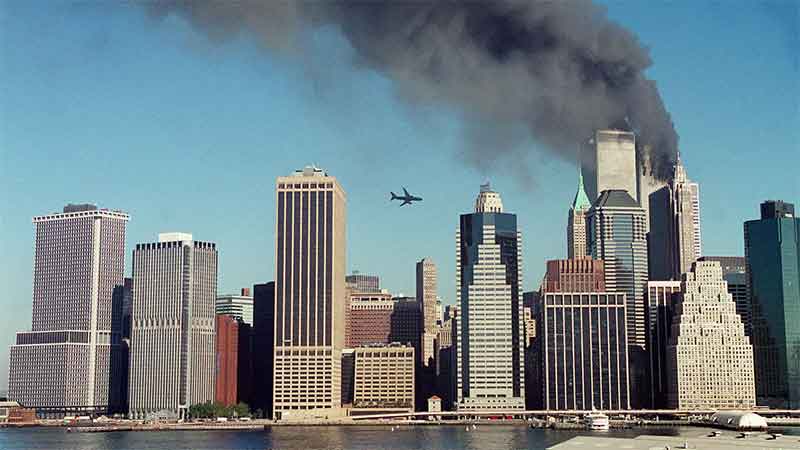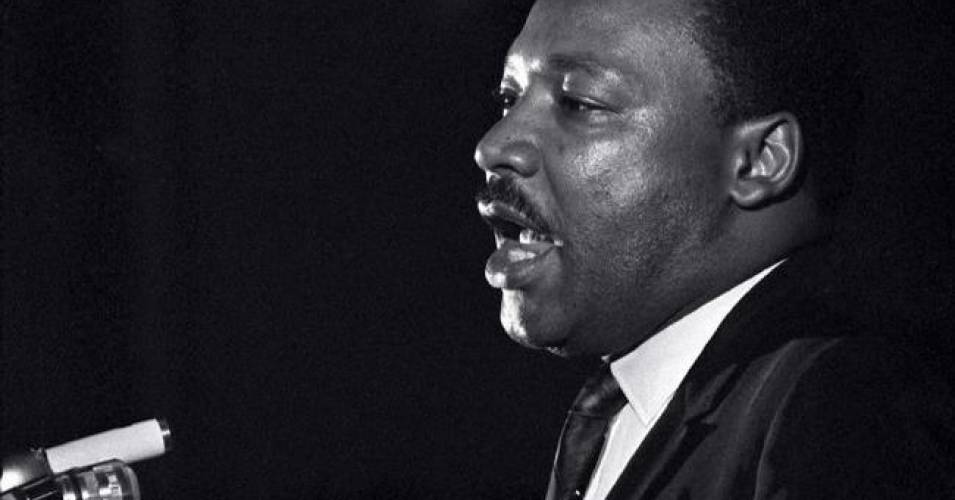Great speeches are those which address the most urgent issues of the time in such such a way as to bring out real solutions while exposing falsehoods. Greatest speeches are those which achieve this in such a way that their relevance increases with the passage of time and years later, even decades later, we can refer to them to improve our understanding and to show us the way in difficult times.
A historic speech delivered by Martin Luther King Jr. is remembered even 55 years later as one of the most courageous speeches ever made. The reference here is of course to the speech delivered by Dr. King at Manhattan’s Riverside Church on April 4 1967—a speech remembered also as the ‘Beyond Vietnam: A Time to Break Silence’ speech. This speech will always be remembered for establishing links between justice at home and justice abroad, between civil rights and world peace, between the sufferings of the victims of injustice at home and in other countries.
Some close colleagues of MLK and other observers have believed that it was after this speech that the high-level plot to assassinate him started taking shape. In fact the bullets which killed the Nobel peace prize winner civil rights and peace activist were fired exactly one year after the precise date of the speech —on April 4 1968—sending an eerie message.
The great importance of this speech is due to several factors. Firstly, he drew a very clear linkage between why a civil rights activist like him has to be a peace activist at the same time. He stated very clearly that the high hopes he had from the poverty program started getting shattered from the time of increased spending on Vietnam war. So he realized that in order to really help the poor it is important also to prevent wars and to have peace.
Secondly, he expressed deep regret that it is mainly the children of the poor (black as well as white young men from poor households) who were being sent to fight a very unjust and oppressive war, while they should have been contributing to reducing distress of their own settlements. Thirdly, he exposed the great injustices and bitter realities about US military intervention with such clarity and conviction that it was bound to have a strong nationwide and infact worldwide impact.
He stated very clearly that a million people had already been killed by this intervention and most of them were children. He said while the USA pretended to be in the role a liberater there but infact it had first helped the French colonial rulers as much as possible to prolong their rule, but when they decided to leave, took over their unjust and cruel role, siding with the most oppressive forces in Vietnam and turning against even those non-communist (including Budhist) forces that wanted justice and self-determination by people. He spoke strongly against farms and greenery spread over vast areas being destroyed and water sources being poisoned by the US intervention. He quoted Budhist leaders as stating that those who want to be friends of the USA are being turned into enemies by its unjust aggression.
More than that MLK called upon people and the church to oppose this injustice and misuse of US power. He called upon young men to consider refusing to be recruited to fight such an unjust and oppressive war of aggression against those people who had never thretened or harmed them or their country. He said that not just in Vietnam, but US power should not be used in any other country also to oppress people..
MLK said in this memorable speech, “In 1957 a sensitive American official overseas said that it seemed to him that our nation was on the wrong side of a world revolution… I am convinced that if we are to get on the right side of the world revolution, we as a nation must undergo a radical revolution of values. We must rapidly begin the shift from a “thing-oriented” society to a “person-oriented” society. When machines and computers, profit motives and property rights are considered more important than people, the giant triplets of racism, materialism, and militarism are incapable of being conquered.”
While calling for a very basic change in values, he also linked this to the far reaching changes this will bring in the policies and actions of the USA. He said, “A true revolution of values will soon cause us to question the fairness and justice of many of our past and present policies. On the one hand we are called to play the Good Samaritan on life’s roadside; but that will be only an initial act. One day we must come to see that the whole Jericho Road must be transformed so that men and women will not be constantly beaten and robbed as they make their journey on life’s highway. True compassion is more than flinging a coin to a beggar; it is not haphazard and superficial. It comes to see that an edifice which produces beggars needs restructuring. A true revolution of values will soon look uneasily on the glaring contrast of poverty and wealth. With righteous indignation, it will look across the seas and see individual capitalists of the West investing huge sums of money in Asia, Africa and South America, only to take the profits out with no concern for the social betterment of the countries, and say: “This is not just.” It will look at our alliance with the landed gentry of Latin America and say: “This is not just.” … A true revolution of values will lay hands on the world order and say of war: “This way of settling differences is not just.”
So MLK was just not asking to end war, but in addition he was asking for ending all policy measures which promoted injustice and advanced the interests of US business at the cost of poor people of other countries. He was also linking US wars with the promotion of unjust, oppressives regimes and systems in other countries.
He said further that he was equally concerned about the physical, mental and emotional injury and harm suffered by US soldiers as they could easily see and understand after some time that they had been sent to fight a highly unjust war.
In a very powerful and passionate part of the speech he said, “This business of burning human beings with napalm, of filling our nation’s homes with orphans and widows, of injecting poisonous drugs of hate into veins of peoples normally humane, of sending men home from dark and bloody battlefields physically handicapped and psychologically deranged, cannot be reconciled with wisdom, justice and love. A nation that continues year after year to spend more money on military defense than on programs of social uplift is approaching spiritual death.”
He said that other policy options were clearly availble to the USA authorities. He said, “America, the richest and most powerful nation in the world, can well lead the way in this revolution of values. There is nothing, except a tragic death wish, to prevent us from reordering our priorities, so that the pursuit of peace will take precedence over the pursuit of war.” This important statement is more relevant today.
Before ending his speech MLK came back to the immediate issue of Vietnam and made very specific recommendations, calling for immediate halt to bombing, unilateral ceasefire, reparations to Vietnam, medical and other help to Vietnam for recovery, accepting right of self-determination and ending aggression in its neighboring countries like Laos as well.
This speech, with an open call for revolutionary changes in the USA and its role in world as well as a non-violent resistance movement, led to increasingly stronger hostile actions being taken against MLK. MLK must have known this, but still he had the great courage to state his beliefs as a peace activist clearly and today this speech remains one of the most timely warnings against war and militarization. It establishes very important linkages between civil rights movement and efforts to end poverty and injustice on the one hand and anti-war, anti-militarization movements on the other hand. When someone who was so deeply involved in civil rights makes such strong linkages, then these are really very important and therefore this speech remains a very important, a living document of such linkages, as also of the linkages between domestic justice and justice in foreign policy.
Bharat Dogra is Honorary Convener, Campaign to Save Earth Now. His recent books include A Day in 2071, Man Over Machine and Earth Beyond Borders.













































